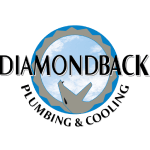Many homeowners have made the mistake of turning a blind eye to the conditions of their home sewer until it needs extensive repairs to restore working conditions. Fortunately, taking care of your home sewer is easy, especially if you are clueless as to where to start. Knowing how to take care of your sewer is important as it can save you money in the long run. In this article, we would like to share some tips to help you maintain your home sewer to avoid unnecessary pipe repairs in the future.
Beware of polluting the pipes
Food scraps should be properly thrown away or composted. The simple act of putting them in the garbage disposal can clog your sewer pipes within seconds. Likewise, you should not put other contents like peanut butter, butter, oil, and grease in the garbage disposal too. Instead, simply toss them into the trash and you are good to go. Sometimes, you may need to put hot grease into a container to let it harden before throwing it away.
Your sewer pipes are connected to the toilet and you should avoid throwing baby materials, medicines, cat litter, cigarettes, and hygiene products into it. Other things such as lint and hair should be taken care of by placing lint traps or screens on drains. It is pertinent that you use plenty of water when operating the garbage disposal. Also, make the effort to clean out the garbage disposal on a regular basis to ensure proper functioning.
Learn how to spot common signs of sewer problems
If you notice even the tiniest sewer problem, it helps by taking early action to call a company that does residential sewer repairs. If you manage to catch a problem sooner, you can easily prevent a backup. Also, you should schedule an annual sewer inspection and drain cleaning service to maintain your home sewer in ideal conditions. In this section, you will learn how to spot the common signs that are associated with the aforementioned.
The common items found in blocked sewers include:
• Oil and grease: Items such as frying oils and bacon grease harden in the drains and can stick to the sides of your piping. This traps more items as they fill up the drain.
• Paper-based products: Tissues, paper towels, Q-tips, cotton balls, cigarettes, and diapers are some of the items that don’t dissolve in the sewer line and eventually clog the pipes.
• Hair and lint: Although they appear as fine materials, they mat in line and quickly clog up your sinks and drains.
• Roots: Believe it or not, plants that are rooted above your sewers seek water during dry seasons and can break into your pipes!
• Cat litter: The gravel and sandy contents from the litter can block your sewer line in no time.
You should always keep in mind that anything that gets dumped into the sewer system is flushed with water. The water gets dirty and needs to be cleaned before it can be returned to the river. Hence, fuel, paint, and oil should never be disposed of through a sewer system.
Review some of your habits at home
Before reviewing your actions at home or at a commercial property, there are several questions you have to pose to yourself. This is to ensure you know what to look out for and correct any mistakes that may surface. You can start by asking yourself the following questions:
• Are you aware of the location of your sewer line?
• Are there any trees or shrubs planted over the lines?
• Have your sewer line been cleaned out recently?
• Do you depend on your garbage disposal for the wrong reasons?
Next, use the following questions if you own a food business or something that is similar:
• Do you install grease traps at appropriate locations?
• Do you clean them on a regular basis?
• Have you marked all their locations?
• Do you scrape your dishes into the trash before washing them in the sink?
• Are there any screens placed over the drains?
Lastly, to reduce the risks of your sewers backing up, you only need to follow these simple rules:
• Remember to flush your garbage disposal with a lot of water and dump food scrapes into compost or the trash.
• Grease must be stored in containers and disposed into the trash when they harden.
• Paper-based products belong in the trash and not the toilet.
• Know what belongs to a compost pile (egg shells and coffee grounds grinds) and what does not (dairy products and bones).
• All drains must be screened and use a lint trap for laundry hoses.
It is common that the sanitary sewer in your home remains unseen or unnoticed until it backs up and creates a very unpleasant situation. Furthermore, flooded basements, overflowing toilets, and blocked sinks are bad news and are considered to be expensive problems. If you wish to avoid these undesirable circumstances, remember to adhere to the steps listed above.
At Diamond Back Plumbing, we provide sewer cleaning services for residential areas. Feel free to call us if you require assistance.
